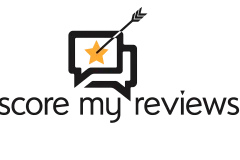Evidence-Based Care for Lasting Relief
Anxiety Counseling & Treatment in Orlando
Break free from anxiety and reclaim your peace of mind. Expert anxiety counseling and crisis support for panic attacks, generalized anxiety, and social anxiety. Compassionate counselors and psychiatrists serving Orlando and Winter Park.
Most major insurance accepted • Self-pay options available
Request an Appointment
Expert Anxiety Counseling in Orlando
Need Immediate Help for Anxiety or Panic Attacks?
Same-day crisis support available. If you're experiencing severe anxiety, panic attacks, or feel overwhelmed, our Orlando counselors can see you today. We understand that when anxiety becomes overwhelming, waiting weeks for help isn't an option.
If this is a life-threatening emergency, please call 911 or the 988 Suicide & Crisis Lifeline immediately.
Our Orlando anxiety therapists and psychiatric providers offer personalized care for individuals seeking support with generalized anxiety, social anxiety, panic symptoms, and worry-related concerns. As part of our comprehensive psychiatry clinic in Orlando, we provide integrated mental health services combining therapy, medication management, and crisis support.
Anxiety disorders are the most common mental health condition in the United States, affecting millions of people. While everyone experiences worry or fear sometimes, anxiety disorders involve excessive, persistent anxiety that interferes with daily life.
The good news? Anxiety is highly treatable. At Empathy Health Clinic, our experienced anxiety counselors and psychiatrists in Orlando use proven, evidence-based treatments to help you manage anxiety symptoms, reduce worry, and regain control of your life.
Anxiety Specialists
Expert psychiatrists and therapists trained in anxiety treatment
Same-Day Crisis Support
Immediate help when anxiety is overwhelming
Insurance Accepted
Most major insurance plans cover anxiety treatment
Telehealth Available
Virtual appointments from the comfort of home
Evidence-Based Anxiety Treatment
We offer comprehensive anxiety treatment using proven methods
Cognitive Behavioral Therapy (CBT)
The gold standard for anxiety treatment. CBT helps you identify and change anxious thoughts and behaviors. Includes exposure therapy for phobias and panic disorder.
Medication Management
Our psychiatrists prescribe anti-anxiety medications (SSRIs, SNRIs, benzodiazepines when appropriate) tailored to your symptoms. We carefully monitor effectiveness and adjust as needed.
Mindfulness-Based Therapy
Learn mindfulness and relaxation techniques to manage anxiety in the moment and reduce overall stress levels.
EMDR for Trauma-Related Anxiety
If your anxiety stems from trauma or PTSD, EMDR therapy can help process traumatic memories and reduce anxiety symptoms.
Insurance & Payment Options
We accept most major insurance plans and offer flexible payment options
Find an in-network provider from most insurance plans
Add your insurance to see in-network mental health providers
We accept most major commercial insurance plans. Self-pay options available. Note: We do not accept Medicaid or Sunshine Health.
Why Choose Empathy Health Clinic
Licensed Professionals
Board-certified psychiatrists and licensed therapists
HIPAA Compliant
Your privacy and confidentiality are protected
Insurance Accepted
We accept most major insurance plans
Same-Week Appointments
Fast access to care when you need it most
Types of Anxiety Disorders We Treat
Common Anxiety Symptoms
Anxiety affects both your mind and body. Common symptoms include:
Mental Symptoms
- • Excessive worry or fear
- • Racing thoughts
- • Difficulty concentrating
- • Restlessness or feeling on edge
- • Irritability
- • Sleep problems
Physical Symptoms
- • Rapid heartbeat
- • Sweating or trembling
- • Shortness of breath
- • Muscle tension
- • Nausea or stomach problems
- • Avoidance of feared situations
Medical References
Anxiety Treatment FAQs
Take the First Step Toward Peace of Mind
You don't have to live with constant worry and fear. Our anxiety specialists are here to help you regain control of your life.






